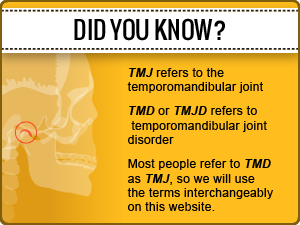It’s easy to take the sense of smell for granted.
After all, you can get through life easily without it. In fact, if asked, a lot of people would say they would rather give up their sense of smell than any other sense.
However, this isn’t to say that a lack of smell, also known as anosmia, won’t have a profound impact on your life. According to Harvard research, 19% to 25% of the population (depending on the age group in question) suffer from anosmia. Researchers found that a lack of smell can lead to feelings of social alienation and even depression.
Thankfully, for some people, anosmia isn’t a permanent condition. TMJ/neuromuscular dentist, Dr. Ira Shapira, can treat it with a DNA appliance.
To understand the link between sense of smell and a DNA appliance, let’s first look at the potential causes of anosmia.
What Causes Anosmia and Why You Need to Have Your Loss of Smell Checked out Immediately
In some cases, anosmia is hereditary, something the experience from birth. However, this condition is rare, affecting approximately one out of every 5,000 to 10,000 people.
What, though, about people who lose their sense of smell suddenly as an adult? In these cases, the cause can be related to:
- Head trauma
- Severe allergies
- Exposure to chemicals
- Nasal polyps or tumors
- Cold, flu, or a sinus infection
- Parkinson’s or Alzheimer’s disease
- Anatomical anomalies related to TMJ disorder (a disorder of the jaw joints)
- Certain medications, including some anti-depressants and heart medications.
If you’ve lost your ability to smell and it hasn’t returned to normal within a few weeks, you should see your doctor as soon as possible. Anosmia can be a sign of a more serious condition that requires treatment right away.
How a DNA Appliance Has Helped Some Patients Recover Their Sense of Smell
Thankfully, some people have been able to regain their sense of smell by seeking out treatment. For example, those with sinus infections or severe allergies have been prescribed medications that clear up their symptoms.
Additionally, those who suffer from TMJ disorder have also noticed a difference in their sense of smell by wearing a DNA appliance. Take, for example, a patient named Mary who lost her sense of smell five years ago. Within a few days of wearing a DNA appliance, she was able to smell again!
Not only that but the chronic facial pain she suffered from quickly dissipated as well. Other benefits: increased stability and decreased pain in her hips and legs.
How does a DNA appliance work, particularly in relation to a person’s sense of smell?
Sometimes, due to the anatomical structure and alignment of your jaw bones, teeth, and palate, you can experience TMJ disorder.
TMJ disorder can cause life-altering symptoms, including chronic pain throughout the head and neck, which can lead to headaches and migraines.
Furthermore, your palatal structure can contribute to a narrowing of the nasal passages, which can result in decreased ability to smell, particularly if you have:
- Naturally narrow nasal passages
- Polyps
- Allergies/infection.
A DNA appliance, which fits like a retainer, gently moves the palatal bones into ideal alignment. Not only does this contribute to less pain, but it can also potentially improve your sense of smell.
Reduce Pain and Improve Your Health with Neuromuscular Dental Treatments
A DNA appliance is one of the many neuromuscular dental treatments offered by Dr. Shapira. Treating dental conditions with these techniques has helped numerous patients reduce their struggle with chronic pain.
Dealing with pain on a regular basis has an immense impact on the quality of your life and health. If you suffer from TMJ disorder, dental pain, or even changes in your sense of smell, contact our TMJ and sleep apnea clinic to learn more about how a DNA appliance can help.
Would you like to know more about how a DNA appliance can change your life for the better? Contact us today to schedule a consultation. We look forward to answering all your questions!

